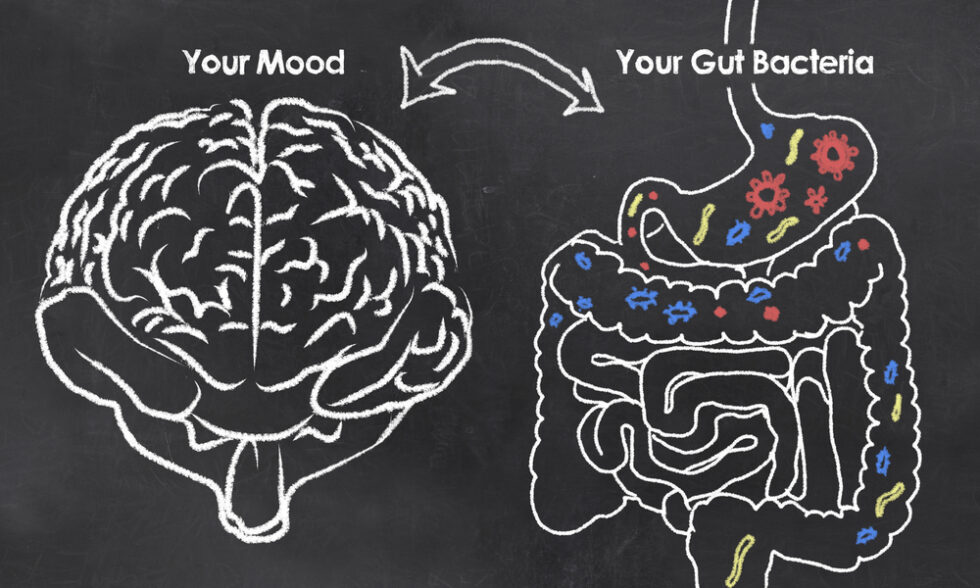
The phrase “trust your gut” might be more literal than we ever imagined. Over the past decade, researchers have uncovered a fascinating connection between the trillions of microbes living in our digestive tract and the way we think, feel, and behave. Once dismissed as a mere collection of bacteria breaking down food, the gut microbiome is now recognized as a dynamic ecosystem that sends chemical signals to the brain, shapes our mood, and even influences mental health disorders. This “gut–brain axis” is revolutionizing our understanding of both nutrition and neuroscience.
The Gut–Brain Superhighway
Inside your gastrointestinal tract lives a vibrant metropolis of microbes: bacteria, fungi, viruses, and other tiny organisms numbering in the trillions. Collectively, they weigh roughly as much as the human brain and contain over three million genes—more than 100 times the number found in our own DNA. These microbes are not silent passengers. Through an intricate communication network known as the gut–brain axis, they exchange information with the central nervous system via the vagus nerve, immune signaling molecules, and metabolic by-products.
Think of it as a superhighway of chemical messages. Certain gut bacteria produce neurotransmitters like serotonin and gamma-aminobutyric acid (GABA), which are critical for regulating mood and anxiety. In fact, about 90 percent of the body’s serotonin is produced in the gut, underscoring just how vital this microbial community is to emotional well-being.
From Microbes to Mindset
Scientific evidence for the microbiome’s influence on the mind is mounting. Animal studies have shown that germ-free mice—born and raised without any gut bacteria—exhibit heightened stress responses and altered social behaviors. When these mice receive transplants of healthy gut bacteria, many of their behavioral abnormalities diminish.
Human research mirrors these findings. People with depression or anxiety disorders often display less diverse gut microbiomes compared to healthy individuals. Certain strains of bacteria, such as Lactobacillus and Bifidobacterium, appear to reduce levels of the stress hormone cortisol and improve mood in clinical trials. This has given rise to the concept of “psychobiotics”—probiotics and prebiotics specifically aimed at supporting mental health.
Mood Disorders and the Microbial Link
The connection between gut health and mental illness is complex and bidirectional. Chronic stress, for example, can disrupt the gut microbiome by increasing intestinal permeability—sometimes referred to as “leaky gut.” This allows inflammatory molecules to enter the bloodstream, potentially triggering or worsening depression and anxiety.
Researchers are exploring whether interventions like targeted probiotics, high-fiber diets, or even fecal microbiota transplantation could complement traditional treatments for mood disorders. While it’s too early to call these approaches cures, early data suggest they can help reduce symptoms and improve overall resilience.
Diet: Feeding Your Inner Ecosystem
So how do we nurture a thriving gut microbiome? Diet remains the most powerful tool. A diverse range of plant-based foods—rich in fiber, polyphenols, and fermented ingredients—encourages beneficial bacteria to flourish. Whole grains, legumes, fruits, and vegetables provide the prebiotic fibers that microbes ferment into short-chain fatty acids, compounds linked to reduced inflammation and improved brain health.
Fermented foods like yogurt, kefir, kimchi, and sauerkraut introduce live cultures that can enhance microbial diversity. Conversely, highly processed foods, excessive sugar, and certain artificial sweeteners can tip the balance toward harmful bacteria, undermining both gut and mental well-being.
Lifestyle Habits That Support Gut–Brain Harmony
Food isn’t the only factor. Regular physical activity stimulates gut motility and fosters a healthier microbiome. Adequate sleep allows the gut to maintain its natural rhythms, while stress-reduction techniques—like mindfulness meditation, yoga, or even simple deep breathing—can reduce the release of stress hormones that disrupt microbial balance.
Avoiding unnecessary antibiotics is also critical. While lifesaving when needed, antibiotics can dramatically reduce microbial diversity, sometimes with lasting effects. When antibiotic use is unavoidable, following up with a probiotic-rich diet may help restore balance.
The Future: Personalized Microbiome Medicine
We are only beginning to map the possibilities of microbiome science. Emerging tools like metagenomic sequencing and AI-driven data analysis may soon allow doctors to create personalized gut-health profiles. In the future, treatments for depression or anxiety might include a tailored microbiome plan—specific diets, targeted probiotics, or even custom-designed bacterial strains to optimize neurotransmitter production.
Yet caution is essential. The microbiome is incredibly complex, and what benefits one person might not help another. Scientists emphasize that while early findings are exciting, we still need large-scale clinical trials to confirm which interventions are most effective.
A Whole-Body Perspective
The gut microbiome challenges the old notion that the mind and body are separate realms. Instead, it reveals a deeply interconnected system where mental health is rooted as much in biology as in psychology. Caring for your gut—through mindful eating, balanced living, and informed medical choices—isn’t just about digestion. It’s a pathway to clearer thinking, steadier moods, and a healthier, more resilient self.
Takeaway
The next time you feel butterflies in your stomach before a big decision or a drop in appetite during stress, remember: your gut is more than a digestive machine—it’s a central player in your emotional orchestra. By nourishing the microbes within, we might just find new ways to uplift the mind, calm the spirit, and rewrite the story of mental well-being from the inside out.







